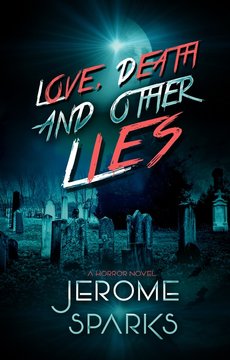 During an ill-fated girls’ night out, still reeling from the loss of her husband, Live Bestte meets a mysterious, old woman who promises to return her husband to her – for a price. It isn’t until the reanimated corpse of her late husband has begun terrorizing the hills and hollows around Julian, West Virginia, tearing flesh from bone, that Liv learns the price is her soul. Now Liv is racing against time to find a way to satisfy this debt without sacrificing herself. And she soon learns that the only way she might escape her grisly fate is by offering up her daughter, Tegan, in her place. But is it already too late for Liv? Is Liv’s fate sealed by family history? When Liv is about to make an ill-fated decision, it is Liv’s younger sister, Abby, who stands in her way, despite the fact that Abby was the first victim of the resurrected thing that was once Conner Bestte - Liv's late husband. Ahoy me hearties! Ah… the winds are from the South and balmy as we sail into port to welcome aboard a crafty teller of dark tales, author Jerome Sparks! Appropriately enough we can see darkly ominous clouds gathering on the horizon as our horror author joins us at the Captain’s table on board the Whimsical Herald. …Here be monsters! LOVE, BETRAYALS AND A LUST FOR REVENGE THAT NOT EVEN DEATH CAN EXTINGUISH “I don’t know what corner of hell you crawled out of, but you might as well drag yourself back because you’ve come to the wrong man if you’re looking for payback!” 1. What draws you to write horror? I've always loved horror stories and horror films. I can't really say why, but I think it may have something to do with the fact that, when I was a really young kid (back in the mid-1970s), I was allowed to stay up late everynight to watch this program on a local network affiliate titled "Chiller Theater." They played all the classic monster movies from Universal - Dracula, Frankenstein, The Wolf Man. And, of course, there was a bevvy of 1950s B-grade schlock like - The Last man On Earth, Them, The Thing, The Blob, House of Wax, The Beast From 20,000 Fathoms, The Invasion of the Body Snatchers, etc., etc., etc. And I remember watching The Abominable Dr. Phibes on Chiller starring Vincent Price. (Vincent Price was a horror god!) And I loved the start of the show as much as the films themselves. The show started out with a tight zoom in on what was obviously a model of a crumbling, gothic, Victorian style house sitting atop a steep hillside, barren except for some lifeless black trees. And then came the booming, baritone voice announcing the title of the films we were about to see (always a double feature) as a flash of what was supposed to be lightening lit up the screen. I’d normally watch the show with my dad, but the Saturdays when my pal stayed over were the best because we made an event of it. We’d start out by making these ultra-thin Chef Boyardee pizzas all by ourselves and all from scratch. (Okay, my mother helped outa little and everything we needed did come ready in a box. But, otherwise, we did it on our own and from scratch!) Then with a slice of pizza in one hand and a soda in the other, we’d settle down in front of the television and watch that night’s offering on “Chiller Theater”!!! Of course, “Chiller Theater” eventually went off the air. But, once Videocassette Players (VHS and Beta) came along, my friends and I set out to make the whole weekend a Chiller weekend. We’d rent the latest horror releases, head over to one guy’s house or another’s (it usually depended on whose parents weren’t upset with us that particular weekend), order a pizza and veg out for the night. That’s how I spent many of my weekends during 1980s. I’m writing horror fiction now because I want to revisit that feeling I had when I was kid watching those late night horror films and having the be-jeezus scared out of me. What is it about the horror genre that makes it so popular in your opinion? It’s hard to answer that without blathering on forever. However, I will say that I believe horror is a successful genre in part because it taps into something primal in our psyches that everyone recognizes and relates to. We’re all afraid of something,if not several things. By reading a good horror novel or watching a horror film, we’re able to face up to some of those fears and come to grips with them in some small way. Another answer to your question is that the best horror fiction is a way we can face the worst part of ourselves and our society. Really good literature often forces us to recognize what is going wrong in the world, what is making our society sick. I think horror is one genre in particular that can do that in a very up front and in your face way. 2. How long have you been composing stories? I’ve been writing since I was in grade school. I’ve always wanted to tell my own stories. After I’d watched a movie or read a comic-book or saw a television show that I loved, I’d go off and try to fit my own characters into worlds like those I’d just seen or read about. I remember writing plays back in the 5th grade and recruiting other kids in my class to star in them. (To be honest, I think the idea to write a play and have other kids star in it came from watching reruns of old black and white “Our Gang/Little Rascals” shorts on TBS.) We never actually managed to put on a production, but we had fun cobbling a story together and talking about it during lunch or whenever we got the chance. Did you originally want to be an attorney or a writer? A writer. I came to the practice of law late in life, after I discovered I wasn’t cut out to teach an English course at the college level. I’d love to be able to support myself solely by writing but that isn’t possible for everyone. And it’s not for me. I know that only the most successful writers can live entirely off of the money they make from sales of their books. So, I make my honest money by practicing law. I do enjoy this line of work because I get to craft arguments often involving complicated ideas and theories. In a lot of ways, the practice of law is like writing a novel. You take an idea and develop it into something that has a shape and a form, something that you can present to an audience. In the case of the legal field, it’s a judge and/or jury, and with a novel it’s the reader. But the idea you are putting out there has to be formed and crafted so that it is intelligible and so your audience can understand it, appreciate it and come to see the logic behind it. 3. Early on in ‘Love, Death, and Other Lies’ there is a family gathering, the dynamics of which would resonate with nearly any reader. How did you come up with it? I think a lot of people have probably lived through family gatherings just like that – uncomfortable, awkward, with tensions simmering just beneath the surface. Every family has some sort of internal political wrangling going on. None are immune. No matter whether we’re simply trying to figure out what to do during a vacation or struggling to deal with the ramifications of a divorce, there’s a certain amount of push and pull, some give and take that’s always taking place. All I did with that particular scene was take what I knew of family dynamics, my own and those of my friends, and teased the conflicts out a bit so they’re more dramatic and obvious. One reason I like to focus on families in my stories, and family dynamics, is the fact that transgressions are more egregious and the horrors greater when they are visited upon us by members of our own families. When a friend or acquaintance betrays or fights with you, you suffer. But, when a close member of your family betrays you or fights with you, that suffering is deeper, closer to the bone. When reading, I always found that those stories involving the betrayal of a character by close family members drew me into the story more than others, and it’s because those relationships are more personal than any other we’ll ever experience, as well as being more universal. 4. Who encouraged you or inspired you to become a writer? I’ve been lucky to have a lot of people encourage my love of writing: teachers, professors, friends, family, my daughter, my wife. But, the first person to really encourage me to write was my dad – Gene Sparks. He has always been an avid reader, devouring any number of books during a given week. And, when he noticed that I was trying to come up with my own stories he was thrilled. He really wanted me to work on my silly little ideas, asking me about the characters and what I had planned for them. He still does. He’s always asking me if I’m working on a new story. He’s read everything I’ve ever written. And I value his advice and criticism. 5. What horror movie do you love that other horror aficionados might hate? There are so many bad horror films out there that I’ve fallen in love with over the years, it’s really hard to zero in on just one. And, any movie I could come up with mostly likely has some kind of cult following. Most of the really awful films do. Just look at Ed Wood and his films! Not only do his truly awful contributions to cinema have a cult following, but the man himself was immortalized by Tim Burton in a fictionalized bio-pic in which Wood was portrayed by Johnny Depp! (That’s a film I do love, love, love by the by!) I suppose, if I had to pick one movie that I’ve heard my friends complain about that I do love it is “The Midnight Meat Train,” a 2008 film starring Bradley Cooper and Vinnie Jones. It’s based on a short story by Clive Barker of the same name and is a bit gory, following a photographer (Cooper) who is investigating the murders of late night commuters on the subway. Of course, this leads him to Vinnie Jones’ character, the serial killer responsible for the murders. The story has an interesting reveal and gruesome twist at the end, which is why I found it compelling. I’m not really what people call a gore-hound. I prefer movies that deliver more scares than gore (“Paranormal Activity,” “Insidious,” “The Ring,” “The Last Exorcism,” “The Witch,” “Sinister,” etc., etc., etc.), but I recognize the fact that there are plenty of gory films out there that deliver both gore and scares. And, I think “The Midnight Meat Train” is one of those. There are no real jump scares, but “The Midnight Meat Train” does present this overwhelming feeling of dread that permeates the film up until the end when Cooper’s character discovers why Jones’ character is actually committing these gruesome murders. 6. There is quite a bit of both tongue in cheek and snarky humor in your novel-are you a funny guy? I’d like to think I’m funny. Although, I’m not sure that’s the case. My daughter sometimes tells me I’m funny. And sometimes she tells me I’m annoying. So, it’s probably a toss-up. In all honesty, I include humor simply because so much of life is absurd. The things we all have to suffer through and deal with during our lives are so ridiculous sometimes. It’s hard not be alive at this particular moment in time and not recognize that fact. You don’t have to look far to find an example of how absurd things are, you only have to pick up a newspaper. And, in my mind, there’s a very thin line between what is humorous and what is horrific. I think there are some really great writers out there who manage to demonstrate what is both humorous and horrific in our world. The best example of one such writer, who is still at the top of his game, is Chuck Palahniuk. Everything he writes contains examples of both the absurdity of the modern world, as well as its horrors. One book of his that I love is “Damned,” which is the story of a teenage girl who dies and is damned to Hell. The story skewers many modern pop culture movements and lays bare how ridiculous it is to believe in any such movement so whole heartedly to the exclusion of anything else. In short, this story, as many of Palahniuk’s stories do, exposes how shallow our modern world is. I’d love to be able to do what he does, but my style is different in tone and approach. 7. Twists and turns abound in ‘Love, Death, and Other Lies’. Did you plot this novel out or did it just evolve? When I write, I usually have an idea where the story is going, an idea of how I think it will end. And I usually have an idea what some of the stops along the way will be. But, all of these twists and turns are usually due to who I think the characters are and what I’d think they’d do in a given situation. However, many times when I’m in the middle of a story, I’m unable to take it in the direction I’d initially intended, times when the ending changes on me. This happens when I learn more about my characters, when I’ve been working on one character or another and I find that they’re not the person I’d initially thought. When that happens, the dynamics of the story will change, along with the plot points and the ending. That is what happened, to some extent, with “Love, Death and Other Lies.” The characters of Liv and her younger sister, Abby, turned out to be much different than what I’d initially thought they’d be. They almost changed roles from where I’d initially envisioned them going. And, by following where the characters took me rather than by sticking to a strict outline for the story, I believe the ending was more satisfying. (At least, I hope readers find it more satisfying.) For Liv, the end is much, much darker than where I thought she’d wind up. 8. Did you find that your legal background and knowledge added to the realism of the novel? Wow. That question actually surprises me because I’d never really thought of “Love, Death and Other Lies” as a realistic story. I suppose that’s because it deals with a reanimated corpse, a demon, ghosts and possession. However, those elements are dropped into a world I hope most readers could recognize. So, I guess you could maybe say it’s a crude example of magic realism? I don’t know that I can say my legal background added anything to the story itself. However, I hope that my legal training, especially where writing legal briefs and memoranda is concerned, informed how I approached the process of writing the novel. When you’re putting together a legal argument, you have to focus in on the message you’re trying to convey and you want to set that out in the most concise and succinct terms possible. I take the same approach when writing any story. I ask myself whether or not the description I’ve provided is too verbose, too cluttered. Because, if it is, if I’ve hidden the idea I’m trying to convey under a mound of overly grandiloquent verbiage, I have to assume I’m probably only amusing myself and more likely to lose the reader. 9. What advice would you give other aspiring authors? That’s a funny question, because it assumes I’ve reached some point in my writing career where someone should actually listen to what I have to tell them. Or that I have some writing wisdom to impart. When it comes to writing, I wouldn’t suggest anyone give what I have to say about “the craft” much weight. I don’t really consider myself qualified to offer advice to anyone. But, I would encourage other writers to keep plugging away, to continue to refine and hone their skills. I’ve never believed it’s enough just to write a story, you have to learn to edit your writing as well and be able to accept and listen to criticism – especially from people you trust and respect. That isn’t to say you should simply roll over and change the heart of your plot because someone reacts negatively to what you’ve written. You should simply consider what it is that caused that reaction and, if the critique is valid, see if you can improve on what you’ve got. I think I’m still developing as a writer. (Or, I hope I am.) I think that’s the most important thing for anyone who writes, to try and continue developing and improving. On some level, I’m never satisfied with what I’ve written. I always want it to be better and I’m always trying to figure out what I need to do, what I can do, to improve the next story I shuffle off. 10. What current projects are you working on and can you share details of any of them with us? I do have a new horror story that I’m working on now. I’m about 40,000+ words into it. It follows a young girl from the time she loses her parents as a baby into her young adult life, as well as the demon that is watching over her in hopes of one day corrupting her soul so that she’ll be damned. I’ve peppered the story with moments of what I believe are extreme violence and horror along the way, but the heart of the story is the growth of this young woman and where she ultimately ends up. 11. What does literary success look like to you? Depending on how you define the word “literature,” I picture Stephen King and/or John Steinbeck as being the epitome of literary success. I know there are pretentious readers out there who will likely roll their eyes because I put both of these men up as equal examples of literary success. But, the fact is that they both epitomize success as writers – because they both managed to connect with their readers. And, in the end, that is the true mark of a good writer, of a successful writer and of “literary success.” I admire both of their respective careers, and their love of writing. And, I would hope, that I could rank up there some day. In all honesty, I’d love to be able to live off of sales of my writing, so that I could do nothing but write for the rest of my life. But, whether I end up disappearing with never having another novel published or not, I’ll likely continue to write. For me, it’s cathartic. Ultimately, even if I should fail with regard to sales, I’ll be happy as long as my daughter can one day look at what I’ve written and appreciate it or, at the very least, appreciate what I was trying to say. aUTHOR rEADING !Blimey! As we unfurl the sails to make for new ports we thank our honored guest Jerome Sparks. He has entertained us most handsomely and we are sure his intriguing novel, ’Love, Death and Other Lies’ will shiver your timbers as it did ours!
Until next we meet, fair winds, following seas, and a warm wind at your back! All my duty to you! Your Mistress of Madness, Patricia Mattern #WEDOMADNESSHERE
9 Comments
Lynne Ligocki Gauthier
6/4/2017 09:41:10 pm
What a great interview. Great questions and very informative answers. It was like a coversation with a friend. Loved it!
Reply
Jerome Sparks
6/5/2017 09:36:19 am
Thanks. I'm glad you enjoyed it.
Reply
Patricia Mattern
6/4/2017 09:45:02 pm
What an intelligent and interesting interview! Love this author's take on horror, family dynamics and all the rest!☆☆☆☆☆
Reply
Jerome Sparks
6/5/2017 09:42:22 am
Thanks for all of the compliments! I do hope you enjoy the book.
Reply
6/5/2017 07:47:09 am
Awesome interview and I also loved watching Chiller Theater . Love the movie Meat Train too. You seem like the kinda guy who write books after my own heart
Reply
Jerome Sparks
6/5/2017 09:38:04 am
LOL. Well, I certainly hope I don't disappoint you.
Reply
Janet Reynolds
6/5/2017 08:07:10 am
What a great interview. This author's perspective on the horror genre is very compelling. Who his writing idols are, just amazed me, because they are so different. I'm very intrigued!
Reply
Jerome Spark
6/5/2017 09:37:12 am
Thank you. I don't know that I'll live up to my idols, but I will try.
Reply
Leave a Reply. |
Patricia MatternMistress of Madness NEWS!Well, do you have any idea why a raven is like a writing desk?
Lewis Carroll, in 1897, proposed this answer, "Because it can produce a few notes, though they are very flat; and it is 'never' put with the wrong end in front!" (raven, spelled backward, is nevar aka never...or as we like to say here at TT...never more!)
Archives
November 2021
Categories
All
|
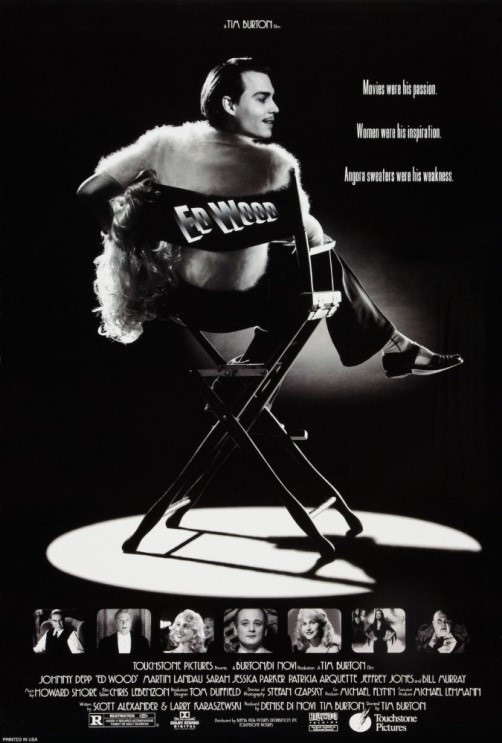
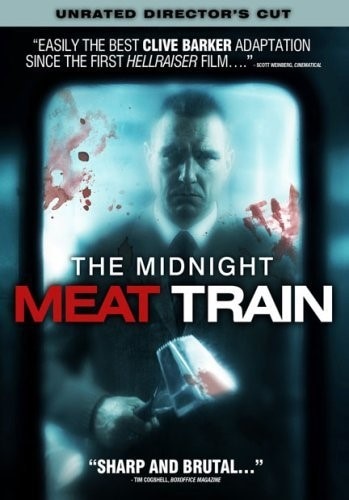
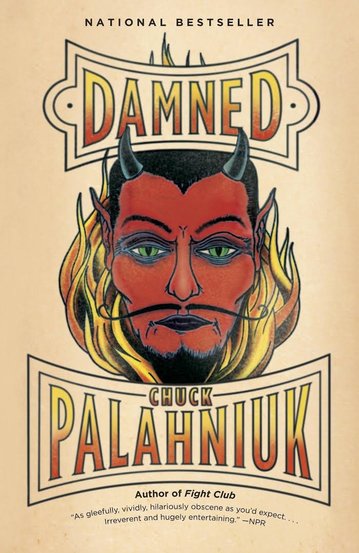
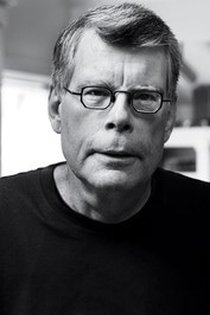
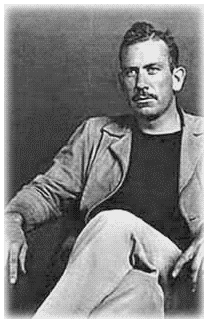
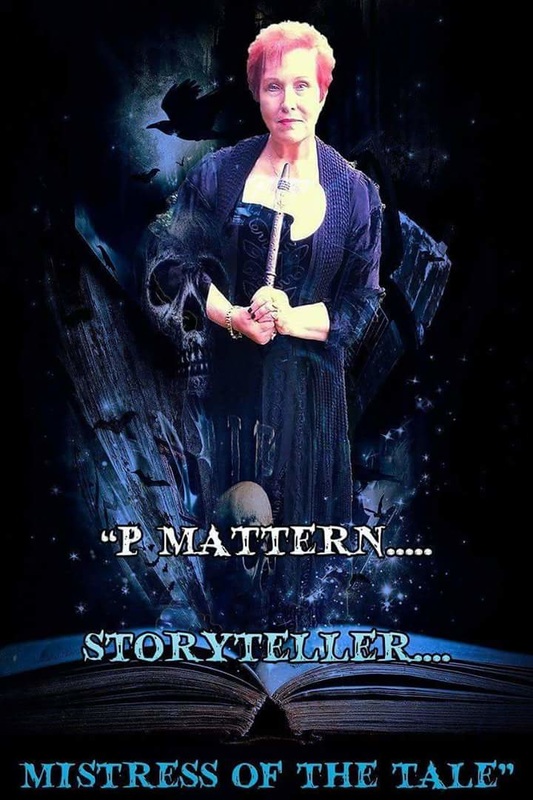

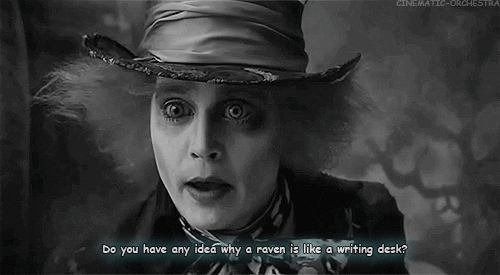
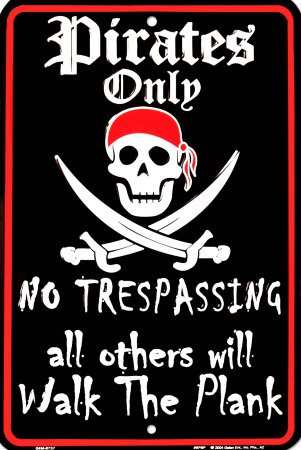
 RSS Feed
RSS Feed